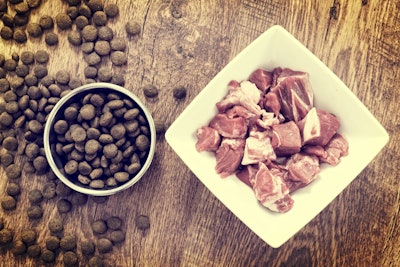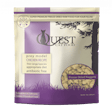
In Australia and Japan, local hunters and farmers are turning to pet food manufacturers in an attempt to create a new revenue stream for their game meat in the face of serious business and ecological challenges to their industry.
The problems posed by El Niño to animal farming and by wildlife overpopulation to crops are being aggravated by a slump in demand for game meat for human consumption.
Bloomberg News recently reported that sheep farmers from Western Australia were giving their low quality animals away for free to pet food manufacturers as prices for mutton dropped to 75% since last year and sheep were being sold at a low US$22. The region is also expected to be hard hit by El Niño, so more animals are being sent for slaughter early as there won't be enough pasture for them when the extremely dry and hot weather arrives. Australia's sheep industry is not expected to recover until summer next year—if normal rainfall returns.
Their Japanese counterparts, however, appear to take the problem of overpopulation of deer in stride with a solution called “Gibier.” French for wild game meat including birds that are hunted for their meat, gibier found its way into the Japanese vocabulary and into pets' food bowls.
Deer and venison meat processors and sellers such as Nanpu Foods, Momiji and Ichimodajin have branched out to pet food using gibier as a main ingredient. Since 2013, Nanpu from Hokkaido makes and sells jerky and other pet treats made from deer meat supplied by local hunters. Sales of their gibier pet food reportedly grew significantly in 2020 during the pandemic.
For Momiji, the addition of gibier pet food to their line of venison products happened after the pandemic. They called it Oishikute – four kinds of colorless pet food made from wild deer culled by local hunters. The gibier treats are packed in 70-gram pouches.
In an interview with The Asahi Shimbun, Momiji president Yukio Kanesawa said their gibier pet food products can help whet a dog's appetite. The Oishikute line is sold at Momiji's online shopping site, targeting pet owners who prefer more luxurious pet food, Kanesawa added.
Ichimodajin, for its part, told Kyodo News that their gibier pet treats get positive feedback from customers whose dogs happily eat deer meat with no allergic reactions. The company added that buying gibier meat from local hunters allows them to help keep Japan's deer population in check to reduce the destruction of crops by wildlife. In 2020, wild animals reportedly damaged about 16.1 billion yen (about US$140 million) of agriculture.
Safety concerns with processing and consumption of wild animal meat or Gibier
Gibier is highly nutritious as it is a rich source of iron and protein, however, it also comes with some health caveats according to an article from the International Journal of Pharmacy and Pharmaceutical Research (IJPPR).
Unlike livestock meat which are processed in industrial abattoirs that have standard health protocols they should follow, game meat supplied by hunters come to the market under vague or less defined origin and processing methods. Whether the game meat is for human or pet consumption, the main concern is the same: risk of infection from pathogens such as Hepatitis E (derived from viruses), Escherichia coli O157 (arising from intestinal bleeding) and Trichinella spiralis (trichinosis). It is also highly possible that veterinarians have not tested for pathogenic microorganisms and parasites before gibier carcasses are cut, the IJPPR article noted.
Aside from food poisoning, there's also the danger of lead poisoning if the bullet used to kill the animal stayed in the body. Perforations by bullets could move pathogens through the blood into the body parts that will be used as gibier meat.
To reduce the risk of infection from eating gibier, researchers recommend that national and local governments must establish proper processing mechanisms for gibier including meat processing plants, and that gibier be cooked or processed rather than eaten raw. In the meantime, hunters should inform pet food companies, restaurants and other gibier buyers about the origin of their game meat like their hunting grounds and other details of a kill.













